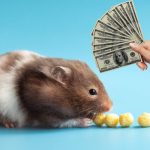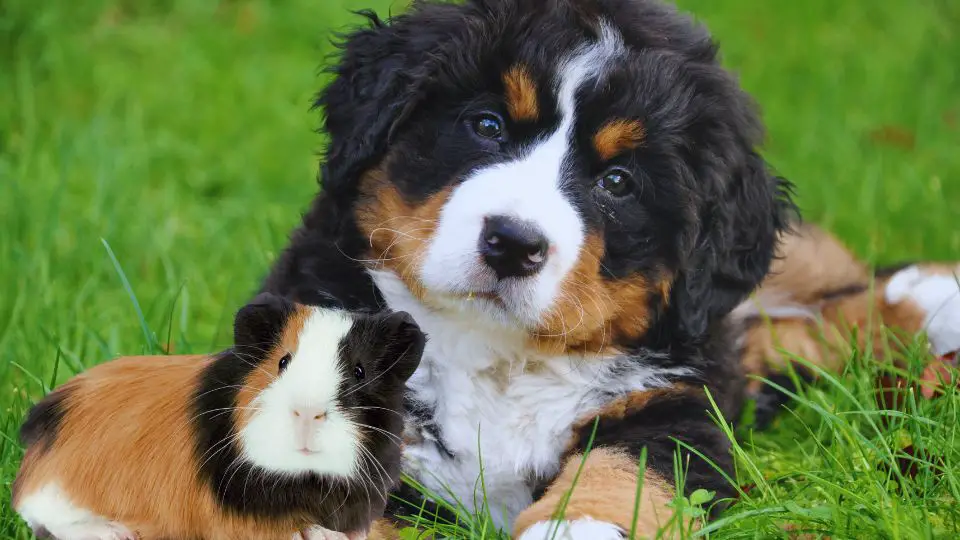Gerbils are cute, playful, and make great pets for families and individuals alike. But before bringing one home, it’s important to consider the commitment that comes with owning a pet.
Gerbils have a lifespan of around 3–4 years, and caring for them requires daily attention and proper care throughout their life.
In this article, we’ll take a deep dive into the commitment required for gerbil ownership, including factors such as daily care, financial responsibility, and emotional investment.
Gerbils lifespan and commitment
Every pet comes with special requirements, and gerbil have their own pros and cons. Gerbils are small in size but big in personality, and they can make wonderful pets if you are ready for the long-term commitment required to provide them with proper care throughout their lifespan.
Gerbils have an average lifespan ranging from two to four years, depending on their environment, diet, and overall health. As gerbils age, they require special attention to ensure that their end-of-life care needs are met. Providing your aging gerbil with the love and care they deserve is essential for ensuring they spend their final days happy and healthy.
Providing Proper Care Throughout Your Gerbil’s Lifespan
Gerbils require consistent attention throughout their entire lifespan if they are going to remain healthy both mentally and physically.
This means providing them with:
- plenty of exercise opportunities (such as running wheels or chew toys)
- frequent trips outside of their cage for supervised playtime (if possible)
- fresh food and water every day (especially fresh veggies!)
- regular checkups at the vet (at least once per year)
- and lots of love from you!
Understanding the Aging Process and End-of-Life Care
As your gerbil ages, you may notice certain changes in its behavior or physical appearance. These changes usually include weight loss, decreased activity levels, difficulty moving around, or cloudy eyesight.
It’s important to provide your aging gerbil with a comfortable place to rest as they enter into their sunset years—a soft bed made of fleece or cotton is perfect for this purpose!
Daily care and commitment
You must remember that your little friend needs a daily commitment from you if you want to make sure that they live a happy and healthy life. Here is a list of things you have to keep in mind.
Feeding and Nutrition
Gerbils are omnivores, which means they eat both plants and animals. The best diet for gerbils consists of good quality seed mixes supplemented with fresh vegetables, fruits, nuts, insects, eggs, cooked lean meats (in small amounts), and other healthy snacks.
You also have to provide plenty of fresh water in a bottle or bowl, so your gerbil can stay hydrated at all times. Avoid giving them too many sugary treats as this could lead to health problems.
Enrichment and Exercise
Gerbils are active animals that need plenty of space to explore every day. Providing your gerbil with an enclosure equipped with tunnels, tubes, climbing walls etc., will ensure they have plenty of ways to get their daily exercise.
You want to give your small pet toys such as chewing blocks or cardboard boxes filled with sand or dirt, so they can keep their teeth worn down naturally. Gerbils also love exploring outdoors in a supervised environment – just make sure you secure any holes in your yard where they may escape!
Grooming & Hygiene
Gerbils do not require much grooming but it is important to clean their enclosure regularly by removing soiled bedding material or food debris every few days – this will help prevent the spread of bacteria or parasites that could cause health issues for your pet.
Don’t forget to monitor your gerbil’s nails – if they become too long you’ll need to trim them using nail clippers specifically designed for small animals (human nail clippers can be too sharp).
Make sure their fur stays clean by brushing it regularly using a soft brush or toothbrush – this will also help stimulate their natural oils which keeps their skin healthy!
Financial commitment
For most of us, having a pet is one of life’s great joys. Pets provide companionship, love, and laughs and make our lives richer. But before you commit to getting a pet, it’s important to consider all aspects of pet ownership—including the financial commitment.
Let’s take a fast look at the initial and ongoing expenses associated with owning a gerbil as well as why it’s so important to budget for unexpected costs.
Initial and ongoing expenses
When you first get a gerbil, there are several upfront costs that you need to consider. A cage is essential—you can find cages specifically designed for gerbils or buy a larger size if you plan on getting more than one—as well as bedding and food.
Other items like exercise wheels, chew toys, and water bottles will also be necessary (not to mention adorable!). The cost of these items can add up quickly, so be sure to do your research beforehand so that you know exactly what your costs will be.
Once you have all the necessary supplies for your new furry friend, there are still other considerations when it comes to maintaining them. Gerbils require regular vet visits in order to stay healthy; they also need their cages cleaned regularly and fresh food supplied frequently.
All of these things come with an associated cost that should be taken into account when budgeting for a pet.
Budgeting for Unexpected Costs
It goes without saying that any pet owner should always set aside money in case of an emergency or illness—gerbils included!
While no one wants to think about their beloved pet being sick or injured, it’s always best to prepare financially in case something unexpected does happen so that you don’t end up blindsided by vet bills or medical expenses down the road.
By setting aside a small amount each month in anticipation of such events, you can rest assured knowing that you won’t be caught off guard if your gerbil ever needs medical attention.
Emotional commitment
One of the most important aspects of being a good pet owner is forming a strong bond with your pet. Having an emotional connection with your pet can help create trust and understanding on both sides. With gerbils, bonding can happen through gentle handling, providing treats, playing together, and spending quality time in each other’s company every day.
Additionally, it helps if you give them plenty of attention when they are awake. Over time, this will help build a trusting relationship between you and your gerbils which will make them more comfortable around you.
Coping with Loss
At some point during their life together, every pet owner must come face-to-face with the harsh reality that their beloved companion will eventually pass away or become ill beyond recovery—and this includes gerbil owners as well!
As difficult as it may be to accept such a fact before it happens (or when it does), being prepared mentally beforehand can help ease some of the pain that comes along with losing such an integral part of your life.
Some ways to cope ahead of time (or after loss) include talking about your feelings with family or friends who understand what you’re going through, or even creating a memorial for your faithful companion so that their memory lives on forever!
Conclusion
At the end of the day, owning a pet, whether it’s a gerbil or any other animal, is a big commitment. Not only do they require financial resources, but also emotional and mental energy in order to form a strong bond between you and your pet.
Considering all these aspects before taking on such responsibility can help ensure that both you and your furry friend are happy and healthy for years to come! It can also help take some of the sting out of dealing with unexpected costs or events that may arise as part of being a responsible pet owner.







